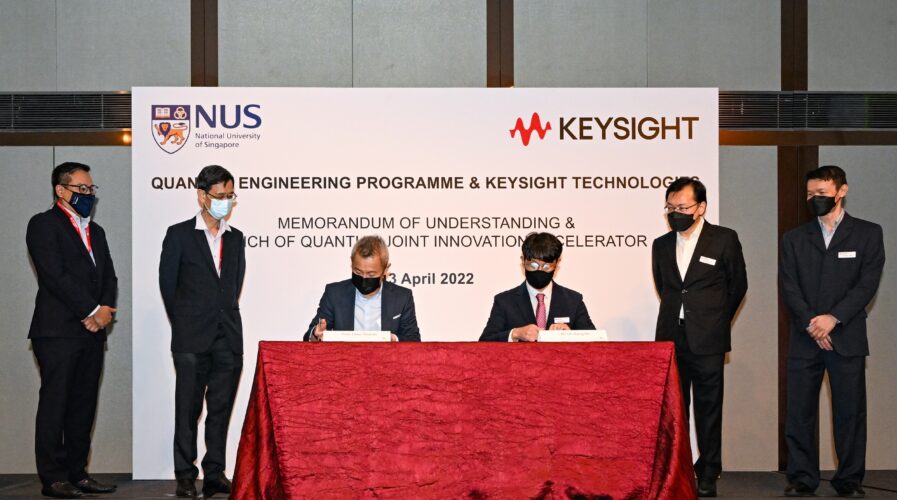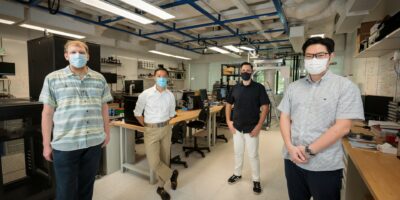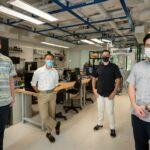
(Source – Keysight)
Keysight to accelerate quantum technologies R&D in Singapore
Quantum technologies are becoming increasingly in demand around the world today. China has been leading the development of quantum technologies in Asia. This includes continued research on advanced quantum technologies that have resulted in numerous applications and use cases on trial.
Apart from China, Japan has also been active in the research and development of quantum technologies in Asia, with the country’s first homegrown quantum computer expected to be ready for use by the end of March 2023. The Japanese government also aims to have 10 million users of quantum computing by 2030.
Over in Southeast Asia, Singapore is also keeping up with the pace of innovations. In fact, Singapore continues to see increasing investment in quantum technologies research and development as well as education in the field.
The National University of Singapore is already working with several tech companies on developing quantum technology use cases for enterprises in the country. The country’s Quantum Engineering Programme (QEP) is expected to start conducting nationwide trials of quantum-safe communication technologies that promise robust network security for critical infrastructure and companies handling sensitive data. Supported by the National Research Foundation, Singapore (NRF), the project kicks off with 15 private and government collaborators on board.
Now, Keysight Technologies and QEP have signed a Memorandum of Understanding (MOU) to collaborate in accelerating research, development, and education in quantum technologies. Launched in 2018 by the National Research Foundation, Singapore (NRF) and hosted at the National University of Singapore (NUS), the QEP aims to support quantum technologies research and ecosystem building.
The program funds projects in quantum computing, quantum communication, security, quantum sensing, as well as a quantum foundry, that are expected to lead to practical uses. Keysight will provide modular and scalable quantum control systems by leveraging the company’s expertise in advanced measurement equipment, qubit control solutions, and precise measurement instrumentation. This will enable researchers to engineer and perhaps scale next-generation systems to harness the power of quantum computing and other quantum devices.
According to Alexander Ling, director of the QEP. He is also an associate professor in the NUS Department of Physics and Principal Investigator at the Centre for Quantum Technologies, it’s going to take a team effort to deliver on the promise of quantum technologies, whether that is better computing performance or more secure communication.
Under the MOU, QEP and Keysight will closely cooperate in the development of quantum instrument packages, as well as the technologies that enable quantum systems to be scalable and deployable. In addition, they will establish a program named “Quantum Joint Innovation Accelerator” that makes it easy for researchers participating in QEP to access several of Keysight’s software design tools and advanced test and measurement equipment. Researchers can apply to evaluate Keysight measurement tools in their laboratories and access equipment hosted at Keysight’s premises in Singapore.
For Sang Ho Oh, general director for South Asia-Pacific at Keysight Technologies, as the quantum ecosystem continues to build, Keysight will contribute solutions that will enable the Singapore ecosystem to accelerate the research, development, and education in the field.
“Keysight and QEP will establish a collaborative framework to accelerate research and development in the emerging quantum technology ecosystem. Having this leading research partnership upstream will open up new frontiers and developments, which will propel industry innovations for years to come,” added BJ Tan, vice president, and general manager of Keysight’s general electronics measurement solutions.
READ MORE
- Ethical AI: The renewed importance of safeguarding data and customer privacy in Generative AI applications
- How Japan balances AI-driven opportunities with cybersecurity needs
- Deploying SASE: Benchmarking your approach
- Insurance everywhere all at once: the digital transformation of the APAC insurance industry
- Google parent Alphabet eyes HubSpot: A potential acquisition shaping the future of CRM


